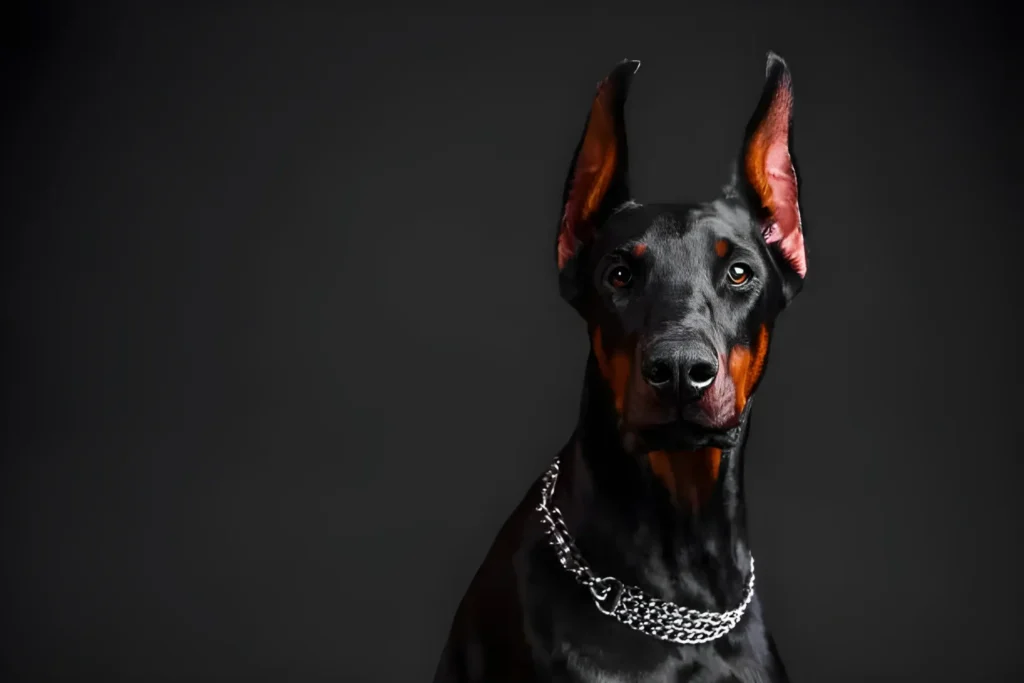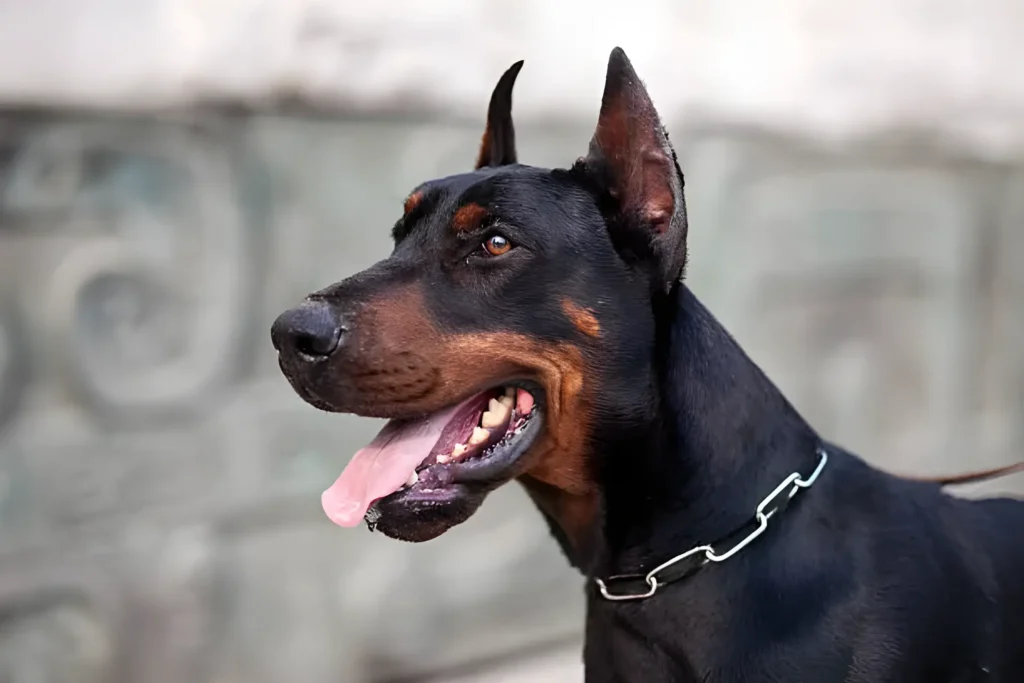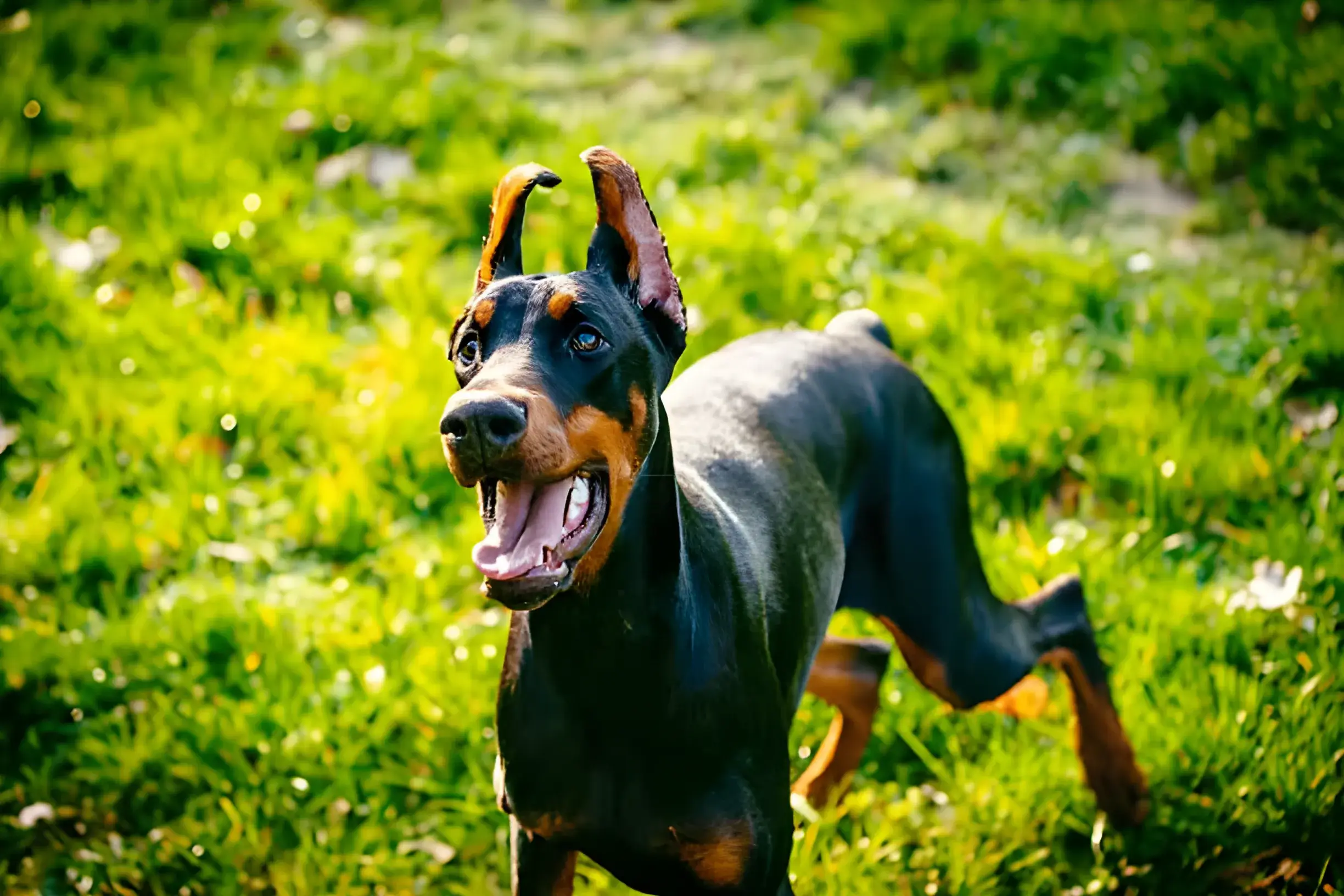Contrary to popular belief, well-bred and responsibly raised Dobermans are not inherently aggressive dogs. However, like any breed, they can exhibit aggressive tendencies if triggered by factors like fear, poor socialization, or a lack of training. Let’s explore the reasons behind potential Doberman aggression and how to create a harmonious environment for this magnificent breed.
History and Temperament: A Guard Dog’s Legacy
Dobermans were originally bred as protection dogs, leading to their reputation for vigilance and occasional aggression. While modern Dobermans retain a protective instinct, responsible breeders aim for confident, even-tempered dogs that are primarily loyal companions.
Common Triggers for Aggression
Fear: If a Doberman feels threatened, they may react defensively. Recognizing the signs of fear (tucked tail, cowering, raised hackles) is vital in preventing situations that could lead to aggression.
Resource Guarding: This behavior occurs when a Doberman feels the need to protect valuable items like food, toys, or territory.
Lack of Socialization: Dobermans not exposed to a variety of people, dogs, and environments from a young age may become fearful in unfamiliar situations, potentially leading to aggression.
Medical Issues: Underlying pain or health conditions can make a dog irritable or even aggressive.
Proactive Prevention: Training and Responsibility

Positive Reinforcement: Rewarding desired behaviors is far more effective than punishment. Focus on obedience training, impulse control, and building a strong bond with your Doberman.
Socialization: Introduce your Doberman puppy to a wide variety of people, dogs, and places in a safe and controlled way. This creates positive experiences and reduces fear-based reactions.
Professional Guidance: Seek help from a qualified dog trainer or behaviorist with Doberman experience, especially if signs of aggression are present.
Management Strategies
Know Your Dog: Learn your Doberman’s specific triggers and avoid situations that might provoke an aggressive response.
Muzzles: In some situations, a muzzle can be a responsible tool to prevent potential bites while continuing training.
Supervision and Control: Especially around unfamiliar people or other dogs, ensure your Doberman is leashed and under your direct supervision.
Myths vs. Reality
Many misconceptions surround Dobermans. Let’s dispel some of the most common myths:
Myth: All Dobermans Are Aggressive:
- Fact: With proper breeding, socialization, and training, Dobermans are loyal and loving companions.
Myth: Dobermans Turn on Their Owners:
- Fact: This is an unfounded stereotype. Dobermans fiercely bond with their families.
Positive real-life examples abound. Dobermans excel in various roles, including:
- Therapy Dogs: Their gentle nature makes them ideal for providing emotional support.
- Search and Rescue: Their intelligence and trainability make them valuable assets.
- Family Pets: With responsible ownership, Dobermans thrive in loving homes with children.
Understanding Doberman Play

Dobermans can be playful and mouthy, sometimes misinterpreted as aggression. Here’s how to distinguish playfulness:
Relaxed Body Language: A playful Doberman will have a loose, wiggling body and a wagging tail. Growling might be present but sounds playful, not guttural.
Focus on Toys: Playful Dobermans will focus on toys rather than people or objects they intend to guard.
Bowing and Play Biting: These are common playful behaviors, but it’s crucial to redirect excessive mouthing onto chew toys.
Redirection Techniques
If your Doberman displays over-arousal, redirection techniques can help:
Introduce a Tug Toy: Redirect their energy to a tug toy they can safely chew on and chase.
“Settle Down” Command: Train them to respond to a calming cue like “settle” or “lie down” to de-escalate situations.
Time-Outs: For brief periods, remove your Doberman from the situation to allow them to calm down before reintroducing them.
Expert Says
Dr. Sarah Jones, a respected Doberman breeder and veterinarian, offers her perspective:
“Dobermans possess high intelligence and a desire to please. Fostering a confident, well-mannered dog involves early socialization and positive training methods. Being a responsible Doberman owner means more than just obedience – provide ample mental and physical outlets, and promptly address any concerning behaviors.”
The Importance of Responsible Ownership
Choosing a Doberman from a reputable breeder emphasizing temperament is crucial. Responsible owners provide consistent training, and ample socialization, address behavioral concerns, and prioritize their Doberman’s mental and physical well-being.
Conclusion
Dobermans are intelligent, devoted, and highly trainable. With dedication and understanding, their natural protective instincts can be channeled toward loyalty and companionship. By dispelling myths about aggression and focusing on proactive measures, we can foster safe and fulfilling relationships with Dobermans.
The photo featured below the post headline is Credit: Drazen/istockphoto
I hope you find this post helpful and informative. If Yes’ feel free to share it with your friends!
Frequently Asked Question
Are Dobermans inherently aggressive?
They aren’t intrinsically aggressive. Dobermans raised in responsible environments with proper breeding are typically loyal and loving companions. However, any breed can develop aggression if not given proper guidance.
Can I stop aggression in my Doberman through training?
Absolutely! Consistent training emphasizing positive reinforcement techniques, building impulse control, and promoting confidence plays a critical role in preventing and managing aggression.
My Doberman displays aggression – what’s the best course of action?
Seek out professional guidance from a qualified dog trainer or behavioral expert. Handling severe aggression requires specialized knowledge.
Are Dobermans prone to aggression towards other dogs?
Some Dobermans might display aggression if not effectively socialized or if they have resource-guarding tendencies. Early socialization and training significantly lower the risk of these behaviors towards other dogs.
Does aggressiveness in Dobermans increase with age?
Age, by itself, doesn’t trigger aggression in Dobermans. However, any unaddressed behavioral problems can escalate over time.
What behavioral issues are common in Dobermans?
Dobermans might experience fear-based reactions, separation anxiety, resource guarding, or over-excitement. Appropriate training and management strategies can prevent many of these issues.
My Doberman exhibits aggression toward other dogs – what can I do?
Training is helpful, and consulting a behaviorist is highly recommended. Management strategies might involve avoiding triggers, structured introductions, and desensitization techniques.
Are female Dobermans more aggression-prone than males?
Both sexes can display aggression. Gender is not the primary determining factor.
How do I spot early warning signs of aggression in my Doberman?
Take note of any changes like growling, body stiffness, snarling, or if your Doberman lunges. Understanding Doberman body language is important for timely intervention.
Will spaying or neutering help curb my Doberman’s aggression?
It might help with hormonally driven aggression, but it’s not a guaranteed fix. Always consult your veterinarian or a behaviorist for advice.
Should I consider a muzzle for my aggressive Doberman?
In specific instances, a muzzle responsibly used alongside professional training can be a tool to prevent bites. Consult an expert for proper muzzle introduction and use.
Is it safe to have a Doberman around children?
Definitely! A well-socialized and trained Doberman can be a wonderful family pet. It’s crucial to always supervise interactions and teach children respectful handling of dogs.

